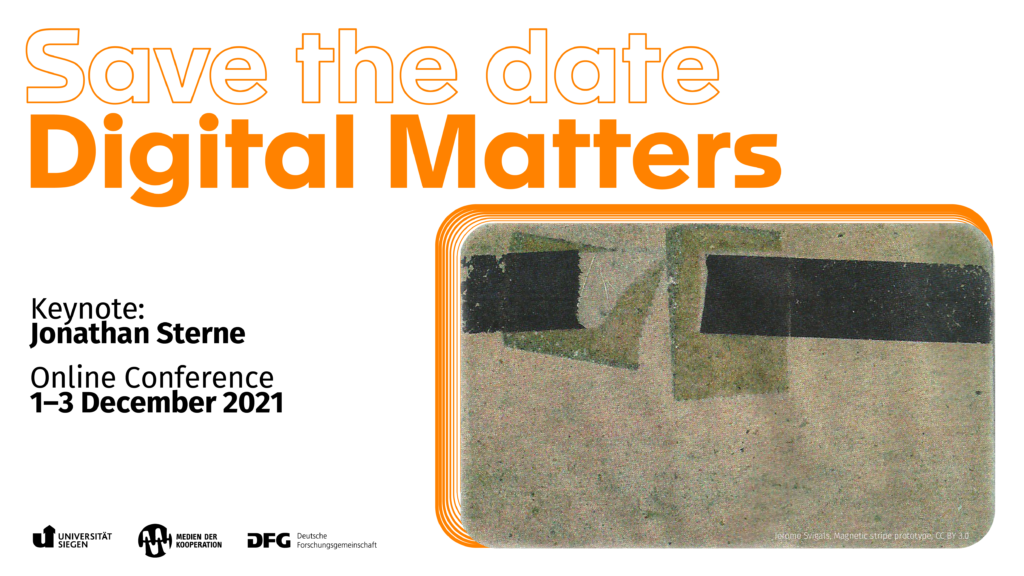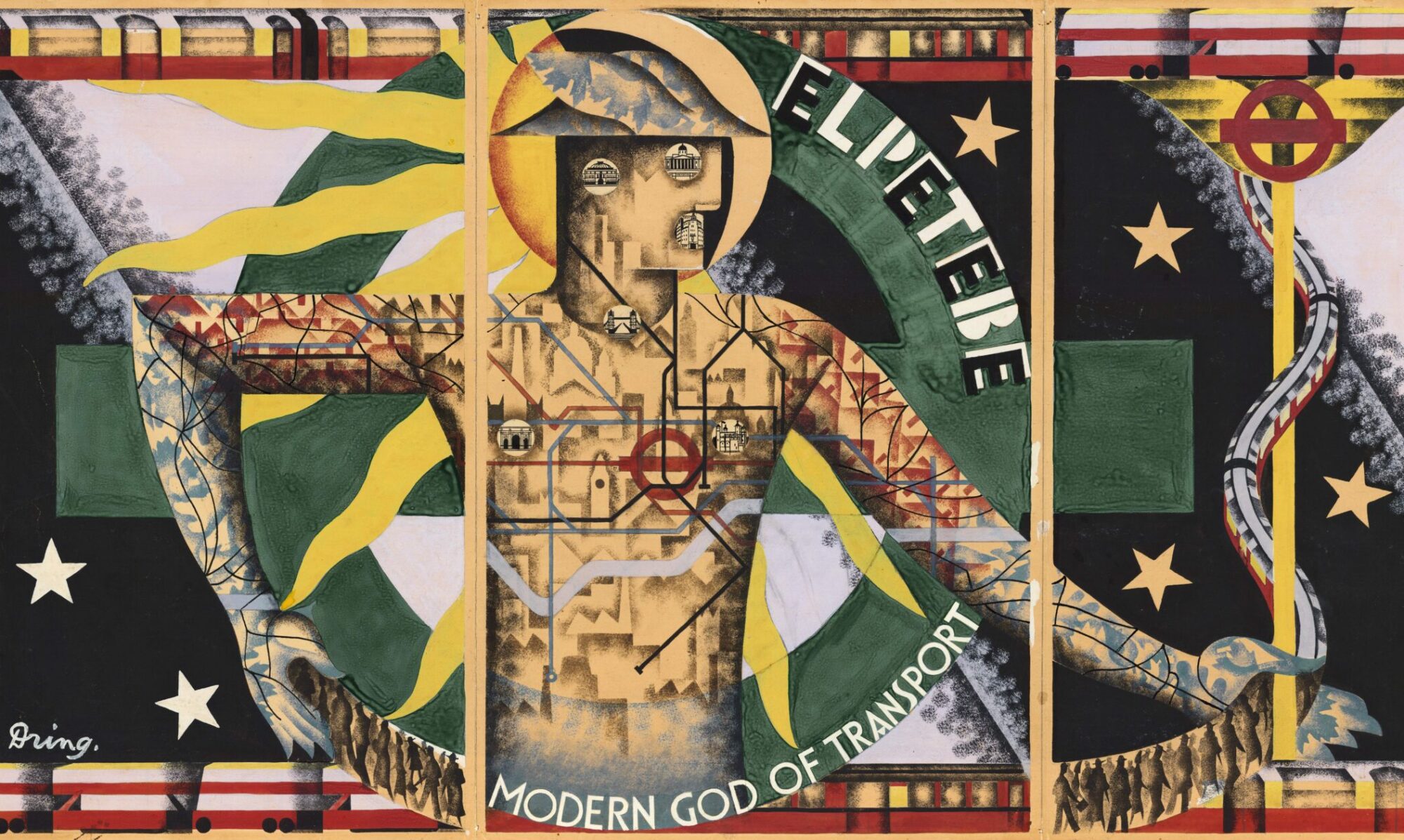 In popular discussion digitality is increasingly equated with networked immateriality: disembodied algorithms float rhetorically in an ethereal cloud of big data. Think, for example, of the “digital edition” of the PlayStation 5 console, so called because it has no optical drive to read games, which must instead be downloaded. The implication is that the regular PS5 console is somehow not digital because its storage medium is visible to the unaided human eye. This presupposition of digital immateriality is not just a misconception to be corrected, but a productive site for interdisciplinary scholarly inquiry into media and data practices. In Digital Matters, historians, media theorists and information scholars come together for three days to examine the socio-material constituents of digital systems and artifacts. How and why did people come to deny the materiality of the digital? What can we learn by recovering it? What if we rethink digital materialities as ongoing cooperative accomplishments?
In popular discussion digitality is increasingly equated with networked immateriality: disembodied algorithms float rhetorically in an ethereal cloud of big data. Think, for example, of the “digital edition” of the PlayStation 5 console, so called because it has no optical drive to read games, which must instead be downloaded. The implication is that the regular PS5 console is somehow not digital because its storage medium is visible to the unaided human eye. This presupposition of digital immateriality is not just a misconception to be corrected, but a productive site for interdisciplinary scholarly inquiry into media and data practices. In Digital Matters, historians, media theorists and information scholars come together for three days to examine the socio-material constituents of digital systems and artifacts. How and why did people come to deny the materiality of the digital? What can we learn by recovering it? What if we rethink digital materialities as ongoing cooperative accomplishments?
The Digital Matters conference is going to take place December 1 – 3, 2021 at Siegen University’s Collaborative Research Center Media of Cooperation. Given the swift change in pandemic circumstances it will primarily be an online event.
Please check https://www.socialstudiesof.info/digitalmatters for the most up to date information on the program, and how to participate.
The conference is organized by Thomas Haigh (University of Wisconsin–Milwaukee & Siegen University), Valérie Schafer (University of Luxembourg), Axel Volmar (Siegen University) & Sebastian Giessmann (Siegen University).
December 1:
13:45: Conference introduction and welcome
Moderator: Valérie Schafer (C2DH, University of Luxembourg)
14:00-14:50: “Travelling machines,” Camille Paloque-Bergès (CNAM, Paris).
15:00-15:50: “Dimensions of Materiality,” Kyle Stine (Johns Hopkins University).
15:50-16:30: Break for virtual coffee.
Moderator: Miglè Bareikytè (Siegen University)
16:30-17:20: “Dance Notation: Grammars for Understanding and Controlling the Body,” Quinn DuPont (University College, Dublin).
17:30-18:20: “Modularity, Materiality, and the Political Order of the Stacks,” Jean-François Blanchette (University of California at Los Angeles).
December 2:
Moderator: Susanne Förster (Siegen University)
13:30-14:20. “Looking for Oil (and Finding It) in the History of Computing,” Cyrus Mody (Maastricht University).
14:30-15:20. “Digitality and Nature in the Anthropocene,” Felix Stalder (Zurich University of the Arts).
15:20-16:00: Break for virtual coffee.
Moderator: Sebastian Giessmann (Siegen University)
16:00-16:50: “The Great eBook Conspiracy: eReaders, Publishers, and Price Competition in the Early 2000s,” Gerardo Con Diaz (University of California at Davis).
17:00-17:50: “Rematerializing Money: Payment as Palimpsest,” Lana Swartz (University of Virginia) 17:50-18:30.
Break for virtual coffee or, for the adventurous, virtual cocktails.
18:30: Keynote lecture, “Some Species of Materiality.” Jonathan Sterne (McGill University). Moderated by Axel Volmar (Siegen University).
December 3:
Moderator: Thomas Haigh (University of Wisconsin–Milwaukee & Siegen University)
13:00-13:50. “The Politics of Technical Systems,” Bernhard Rieder (University of Amsterdam).
14:00-14:50. “Digital Materiality and Historical Innovation,” Ulf Hashagen (Deutsches Museum).
14:50-15:15. Break for virtual coffee.
Moderator: Tatjana Seitz (Siegen University)
15:15-16:15. “Web Materialities,” Valérie Schafer (C2DH, University of Luxembourg).
16:20-17:00. Closing roundtable featuring the organizers pondering lessons learned.

